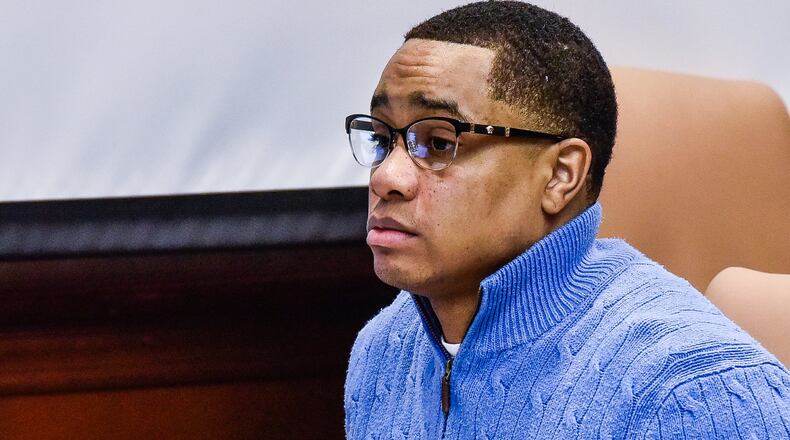MORE: Internet searches, cell phone videos questioned in death penalty trial
Closing arguments began shortly after 9 a.m. Wednesday. After receiving instructions from Butler County Common Pleas Judge Greg Stephens, the jury began deliberations at about 12:20 p.m.
During closing arguments, prosecutors pointed to text messages and phone calls from a phone belonging to Grevious sent to the man they say he hired to handle the hit on Orlando Gilbert following a bar shootout that killed his brother.
Zachary Harris and two others first traveled to the city on July 27. One of those people, Erica Woods, testified she overheard Grevious tell Harris, “You get the other half when it is handled,” Assistant Prosecutor Brad Burress told the jury.
The second hit team of Harris, Tony Patete and Melinda Gibby returned to the area on Aug. 2, 2016 driving around looking for Gilbert. Gibby, the driver of the truck in the fatal shooting, testified about the plan to kill Gilbert and that on Aug. 3, they were successful.
After the bar shooting and through Aug. 3, 2016, there were more than 200 calls between Grevious and Harris, Burress told the jury.
MORE: Juror dismissed in Hamilton death penalty trial
After the shooting of Gilbert in broad daylight, there were six calls between Grevious and Harris, Burress said.
“Zach wanted to tell this defendant it was handled so he could get the rest of his money,” Burress said.
Defense attorney David Washington told the jury the prosecution had told a good story, but “this is not a novel.”
Washington pointed to holes and inconsistencies in the witnesses’ testimony, noting Gibby had a reason to cooperate because she got a deal avoiding the death penalty.
Evidence against Gibby was overwhelming, so she had to do something, so she became a witness, Washington told the jury.
Washington also told the jury there is reasonable doubt because the only witness to see Grevious allegedly shoot a gun inside the bar is an 18-year-old who was drinking alcohol and smoking “weed.” There is also no evidence in any of the messages that money was paid by Grevious to kill anyone, he said.
Because this is a capital case, the jury is required to be sequestered until a verdict is reached. While sequestered, the jurors will not have access to telephones or television.
Eleven deputies and the court bailiff will keep watch over the jury and three alternates at a local hotel to assure the rules are followed.
About the Author

